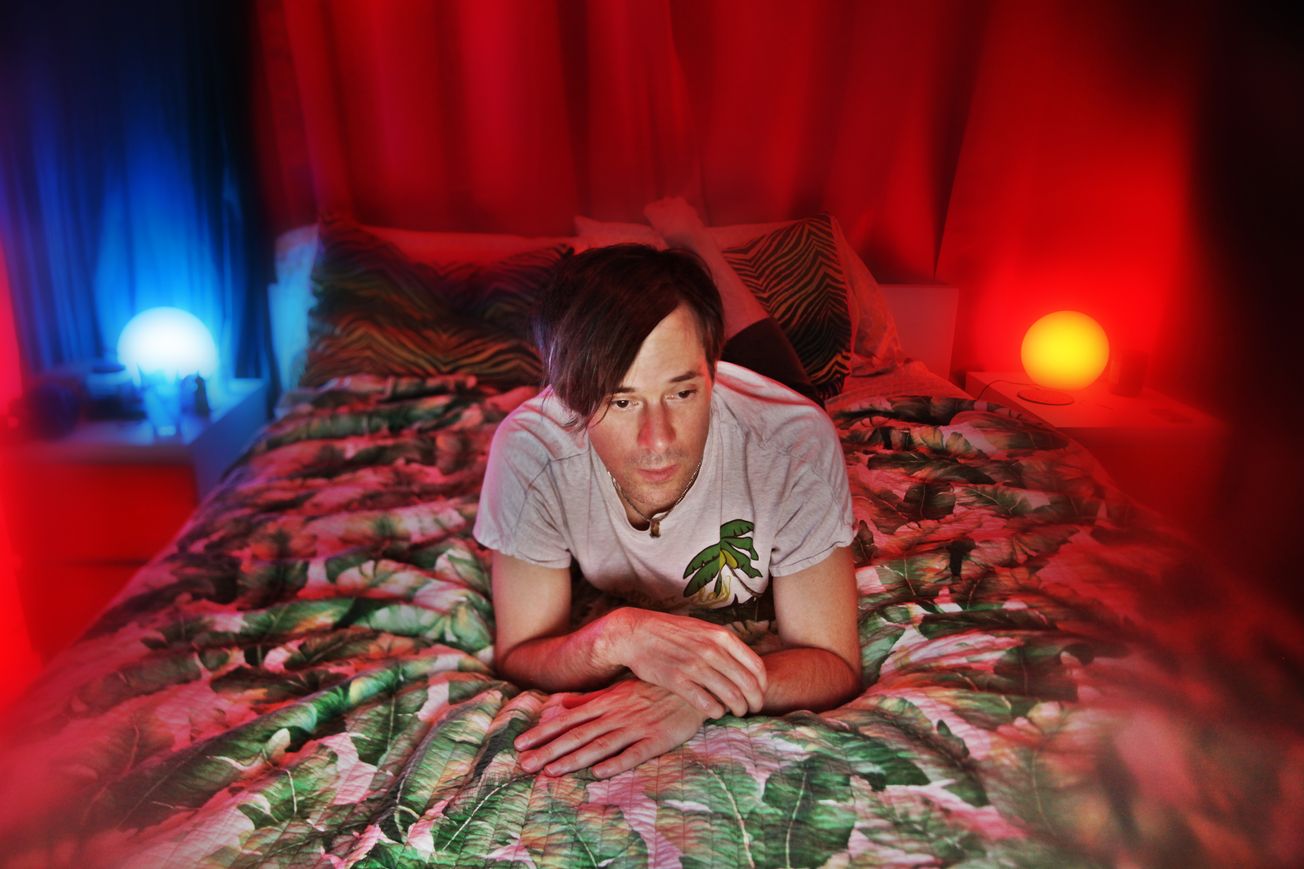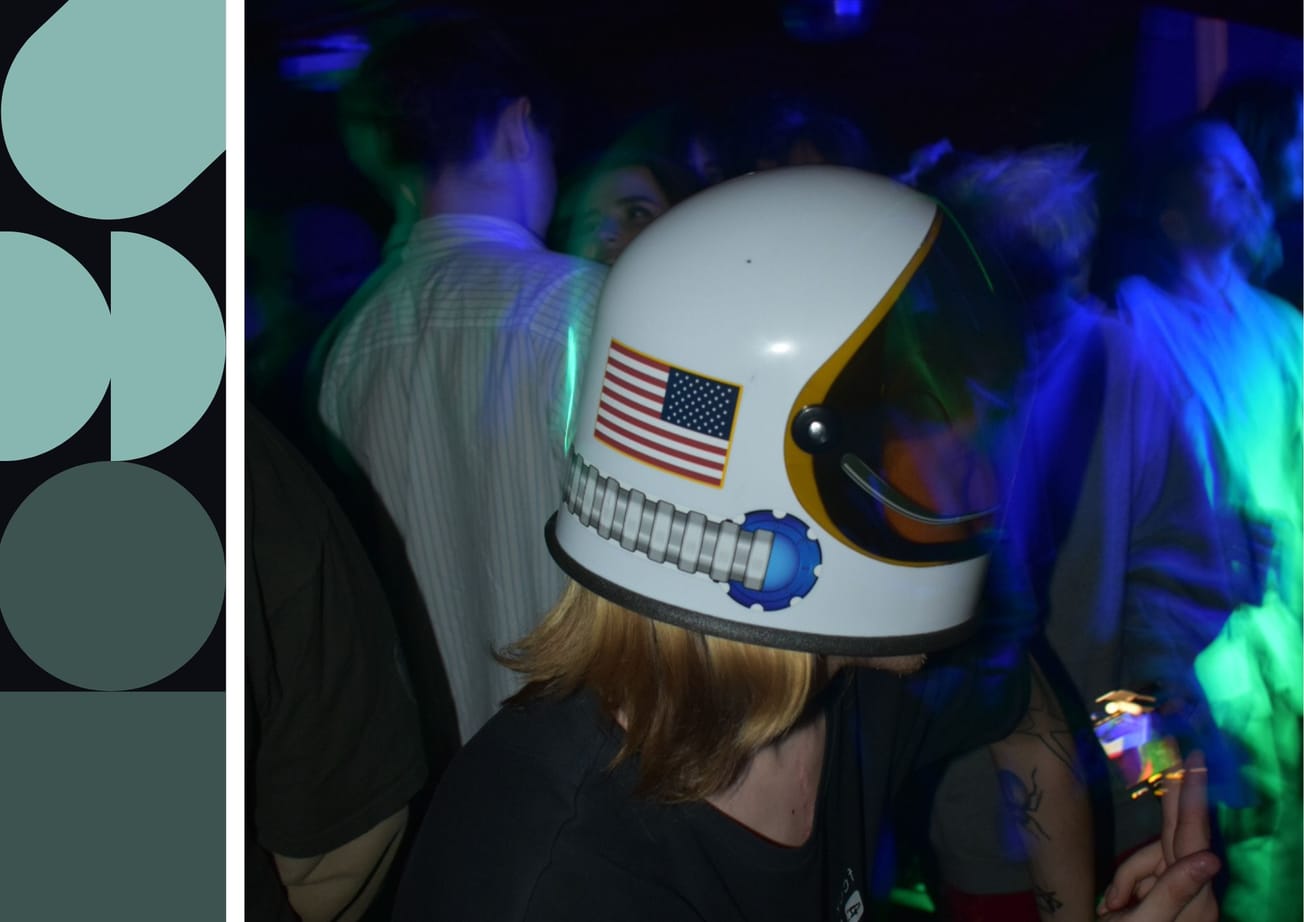By Madison James, First Year Politics and French
Long-time cult favourite of Montreal’s newest output marries recent forays into synth-pop experimentalism with a prescient undercurrent of anxiety.
Over the course of Kevin Barnes’ prolific career as the frontman of Georgia based group of Montreal, we’ve had some hits and misses. 2007’s Hissing Fauna, Are You the Destroyer? catapulted the quintessentially hipster band to relative stardom, especially among followers of the Elephant 6 Collective, which boasts the esteemed Neutral Milk Hotel on its roster among others. Grandiose, outrageous, bordering on the affected at times, but never boring, Barnes has remained the creative beating heart of the group throughout its changing composition, heavily influencing the unmistakeable soundscapes which characterise the 24 studio albums they have released to date.
It seems like just yesterday that UR FUN was unveiled to a mixed reception, with its hyperactive synth-filled melodies and slightly sanctimonious political diatribes, leading to an overall fun and quirky but mostly forgettable effort. Their latest release I Feel Safe With You, Trash similarly leans heavily on its electronic and hyperpop influences, but feels altogether more cohesive than its predecessor — although it may seem off-putting, especially on the first listen, it keeps you hooked. Moody and sepulchral, the 20-song effort includes some standout tracks, despite being let down somewhat by the filler which makes up its main body.
The heady days of Lousy with Sylvianbriar and The Sunlandic Twins, when chord changes made sense and you could almost certainly count on any given track being vaguely distinguishable from its neighbour, are long gone. Although each album tends to include at least one or two standout singles, there hasn't really been any bona fide hits since 2016’s ‘it’s different for girls’. However, from start to finish Trash is a flamboyant, retro-futuristic extravaganza, earning it a place among of Montreal’s most musically varied and experimental works to date.
‘Carton Aesthesis (o Portão)’ provides a discordant introduction, with Barnes’ plaintive vocal lilting under a wave of reverb. The introspective refrain of ‘I know how they see me’ signals his characteristic focus on self-image, made particularly significant considering his past struggles with body dysmorphia. This is closely followed by the sensual, ethereal ‘Aries Equals Good Trash’, the standout track with its rhythmic synth and hypnotic bass.
of Montreal’s many idiosyncrasies include their memorable capacity for naming things — reading through their discography, it is clear that Barnes treats dictionaries like a child would treat an Argos catalogue at Christmas, and the group’s album and song titles are named accordingly. No such careful reasoning exists in Trash. A random collection of letters here, some Portuguese there, and the track listing begins to look more like a particularly suspicious ingredients list than an actual release from an artist that has been around for almost a quarter of a century. Perhaps unsurprising, considering that breaking convention is what of Montreal does best.
Barnes’ grandiose live performances have always served an outlet for him to explore his androgynous gender expression, and, dispelling any lingering doubts about his identity, he recently came out publicly as non-binary and bisexual. This theme is particularly influential on songs like ‘Queer as Love’ and ‘This is Exposed’. As well as being the most upbeat and celebratory tracks on the album, they feature some of Barnes’ most iconic tongue-in cheek and, at best, completely indecipherable lyricism.
Long-time fans would have perhaps already heard ‘Japanese Word for Witch’ in its acoustic form, released on the band’s Patreon a couple of months ago. A delicate love song featuring beautiful lyrics such as ‘when you die, everything else dies / there is no life outside of your mind’, the album version however, is slightly disappointing. Its meaning has been distorted by the needless reverb, causing it to sound clumsy and jarring. To say the song and the album as a whole is overproduced would be an oversimplification; the essence of the band itself lies in the production, where Barnes is able to fully express his creativity, a riot of colour and glittering synth and vibrant basslines. At times, though, he has gone a little overboard on Trash.
The album’s closer, ‘So Chill Then (o Portão)’ comprises of a foreboding monologue booming over a fuzzy electronic backdrop, reminiscent of David Bowie’s Diamond Dogs with its atmosphere of some distant apocalyptic future, before easing into a gently reverberating wasteland, Barnes’ voice barely audible over the sea of sound. It’s an uneasy end to an album filled with ambiguity. The frontman once tweeted ‘I make realistic music’, seemingly at odds with of Montreal’s outlandish image and off the wall subject matter. However, I Feel Safe with You, Trash, with its dark and apprehensive undertones, feels like a convincing reflection of the current age.
Nubiyan Twist - 'Freedom Fables' Review
Something to look forward to: The summer 2021 Bristol events guide
Featured image: Polyvinyl Records
What did you think of of Montreal's newest album?









